
PUMPA - SMART LEARNING
எங்கள் ஆசிரியர்களுடன் 1-ஆன்-1 ஆலோசனை நேரத்தைப் பெறுங்கள். டாப்பர் ஆவதற்கு நாங்கள் பயிற்சி அளிப்போம்
Book Free Demo1. Tipu Sultan: Tipu Sultan was a brave man. He was also known as Tipu Sahab or the Tiger of Mysore. Tipu Sultan was born on 20 November 1750, and he was the ruler of the Kingdom of Mysore. During his rule, he introduced many administrative reforms, like a new coinage system, a calendar and a new land revenue system, which sparked the growth of the Mysore silk industry. Tipu Sultan fought for the goodness of his people. While Tipu was fighting with the British rulers, he got defeated and died on the battlefield. He died on 4 May 1799 at the age of 48.
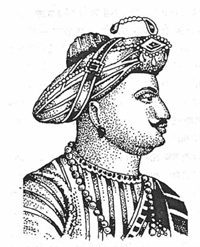
2. Raja Ram Mohan Roy: Raja Ram Mohan Roy was born on 22 May 1772 in Radhanagar, Hooghly District. He was a man from Bengal. Raja Ram Mohan Roy was a well-known educated man and a great social reformer. Many historians called him the "Father of the Bengal Renaissance". Raja Ram Mohan Roy started his education in the village pathshala, where he learned Bengali, Sanskrit and Persian language. He was also known for his efforts to abolish the practices of Sati and Child marriage. He died on 27 September 1833.
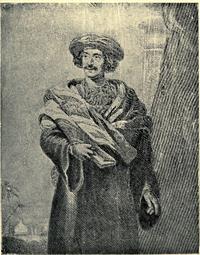
3. Bentinck: Lord William Bentinck was born in Buckinghamshire on 4 July 1828. Bentinck was an English man. He served as Governor-General of India from 1828 to 1835. He was educated at Westminster School London.
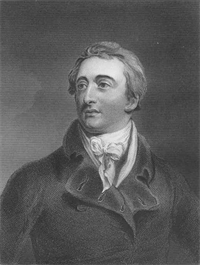
4. Macaulay: Thomas Babington Macaulay was born in October 1800. Macaulay was a British historian and a politician. He was well-known for introducing the Western education system in India. He thought of changing the Indian language (Sanskrit and Persian) and educated the English language to Indian people. Later on, Macaulay taught the English language to Indians and produced many masterminds. He died on 28 December 1859 at the age of 59.
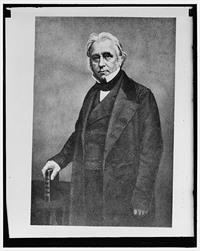
5. Sepoy Mangal Pande: Sepoy Mangal Pandey was born on July 19, 1827. Mangal Pandey was a Brahmin soldier. He joined the army of the British East India Company in 1849. While he was working under the Britishers, he saw the Britishers were oppressing the Indian people. So he revolted against the Europeans with thousands of sepoys. Later on, the Britishers came to know about Pandey's plan, and so he was executed. Thousands of other sepoys were put in iron bars. He died on April 8, 1857.
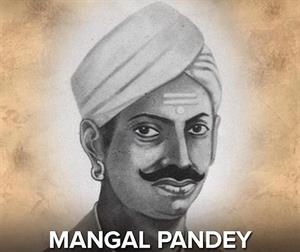
6. Emperor Bahadur Shah: Emperor Bahadur Shah was also known as Bahadur Shah Zafar or Bahadur Shah II. He was born on 24 October 1775. When the Indian rebellion of 1857 spread all over India, sepoy regiments reached the Mughal Court at Delhi. Many Indian kings and regiments accepted him as the "Emperor of India" because Bahadur shah considered all the religion as one. He died on 7 November 1862.
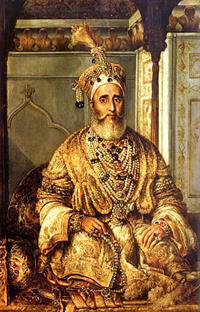
7. Begum Hazrat Mahal of Lucknow: Begum Hazrat Mahal was born in 1820 . She was also called as Begum of Awadh. However, the British took away her kingdom. So she rebelled against the British East India Company in 1857. Begum Hazrat Mahal died in 1879.
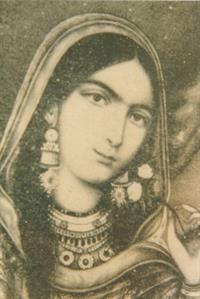
8. Maulvi Ahmedulla of Faizabad: Maulvi Ahmedulla of Faizabad was born in 1787 . He was a famous freedom fighter and a great leader of the Indian Rebellion of 1857. Maulvi Ahmedulla of Faizabad was known as the "Light house of Rebellion in Awadh region". He believed that the co-operation of people was essential for the success of a massive war. He travelled to Delhi, Meerut, Patna, Calcutta and several other places to keep the people ready for the first war of Independence. He passed away on 5 June 1858.
9. Azimulla Khan: Azimulla Khan Yusufzai was also known as Dewan Azimulla Khan. He was born on 17 September 1830. Azimulla Khan was involved in the Indian Rebellion of 1857 and died on 18 March 1859.
10. Tatya Tope: Tatya Tope was born on 16 February 1814. He was a general in the Indian Rebellion of 1857, and he was also considered one of its notable leaders. "Tatya" means "General", and "Tope" means commanding officer. Tatya Tope is widely viewed as one of the most influential rebel generals. He died on 18 April 1859.
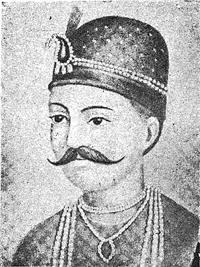
11. Kunwar Singh of Bihar: Kunwar Singh was also known as Babu Kunwar Singh, and he was born on 13 November 1777. Kunwar Singh was a great leader during the Indian Rebellion of 1857. At the age of 80, he led a selected band of armed soldiers against the troops under the command of the British East India Company. He was the chief organiser of the fight against the British in Bihar. Hence, he is popularly known as Veer Kunwar Singh. He died on 26 April 1858.
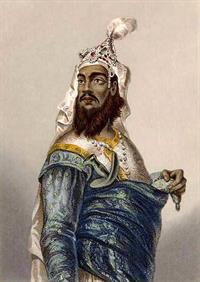
- https://commons.wikimedia.org/wiki/File:Portrait_of_Raja_Ram_Mohun_Roy,_1833.jpg
- https://commons.wikimedia.org/wiki/File:Bahadur_Shah_II.jpg
- https://upload.wikimedia.org/wikipedia/commons/f/fd/Tipu_Sultan-Konkani_Vishwakosh.png
- https://upload.wikimedia.org/wikipedia/commons/e/e3/Bentinck_william.png
- https://commons.wikimedia.org/wiki/File:Mangal-pandey_1460075022-1.jpg
- https://commons.wikimedia.org/wiki/File:Begum_hazrat_mahal.jpg
- https://commons.wikimedia.org/wiki/File:Tatya_Tope_portrait.jpg
- https://commons.wikimedia.org/wiki/File:Kunwarsingh.jpg
- https://picryl.com/media/lord-thomas-binghamton-ie-babington-macauley
Reference: